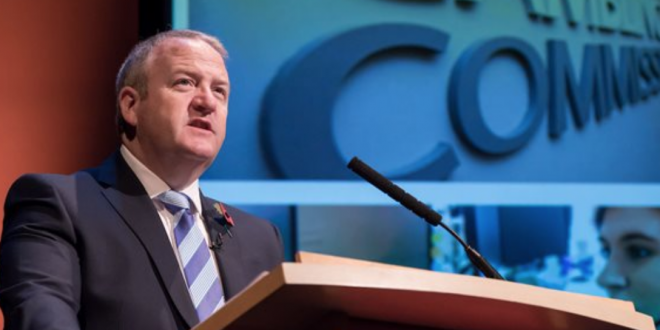Issuing its first regulatory enforcement of 2020, the UK Gambling Commission (UKGC) has this morning confirmed that it has sanctioned its widely anticipated ban on credit card transactions carried across all UK gambling verticals.
The Commission plans to implement its credit card ban from 14 April 2020, giving licensed incumbents three months to undertake all necessary adjustments.
Citing that UK gambling requires a ‘further layer of additional protection’, the credit wagering ban will be applied across both land-based and online products, with the exception of non-remote lotteries.
As reported, the Commission undertakes its sweeping ban following its year-long consultation on online gambling, which primarily focused on reviewing regulatory structures and industry safeguards monitoring credit card transactions.
In its research, the Commission detailed that ‘22% of online gamblers using credit cards to wager are classed as problem gamblers’, and that further protections were needed to protect ‘at-risk customers’.
Neil McArthur, Gambling Commission chief executive, said: “Credit card gambling can lead to significant financial harm. The ban that we have announced today should minimise the risks of harm to consumers from gambling with money they do not have.
‘“We also know that there are examples of consumers who have accumulated tens of thousands of pounds of debt through gambling because of credit card availability. There is also evidence that the fees charged by credit cards can exacerbate the situation because the consumer can try to chase losses to a greater extent.”
The commission said that it has consulted diverse UK stakeholders on its assessment of credit wagering, with financial services authority UK Finance estimating that 800,000 consumers use credit cards to gamble.
In his statement, McArthur underlined that the inconvenience on consumers and wider industry stakeholders was necessary to strengthen UK gambling protections and reducing risks – detailing that the UKGC would ‘evaluate the ban and watch closely for any unintended circumstances for consumers’.
In addition, during 2019 the Department for Digital, Culture, Media and Sport (DCMS) had held discussions with UK banks and gambling operators to discuss growing concerns on credit wagering, assessing how incumbents could use customer data and technology to stop problem gambling transactions.
Supporting the UKGC decision, DCMS Culture Minister Helen Whately said: “Whilst millions gamble responsibly, I have also met people whose lives have been turned upside down by gambling addiction. There is clear evidence of harm from consumers betting with money they do not have, so it is absolutely right that we act decisively to protect them.”
“In the past year we have introduced a wave of tougher measures, including cutting the maximum stake on fixed odds betting terminals, bringing in tighter age and identity checks for online gambling and expanding national specialist support through the NHS Long Term Plan. We have also secured a series of commitments from five leading gambling operators that will include £100 million funding towards treatment for problem gamblers.”
DCMS and UKGC governance warn licensed incumbents of further disruptions as the government undertakes its review of the ‘2005 Gambling Act’ – a legislative mandate branded as analogue by the 2019 Conservative Party manifesto.
“But there is more to do,” added Whately. “We will be carrying out a review of the Gambling Act to ensure it is fit for the digital age and we will be launching a new nationwide addiction strategy in 2020…We will not hesitate to take any further action necessary to protect people from gambling harm.”
Further regulatory requirements see the UKGC enforce that upcoming changes to licencing conditions will require all online gambling incumbents to participate and provide customer access to the GAMSTOP self-exclusion scheme from 31 March 2020.
Governing over 200 licensed online gambling operators, the Commission believes that GAMSTOP requirements will make access to self-exclusion simpler for vulnerable consumers preventing further online gambling harms.
Backing GAMSTOP requirements, McArthur said: “We welcome the fact that GAMSTOP have got to this stage in their development and encourage them to continue to improve their offer, particularly in relation to preventing those who have self-excluded being targeted by direct marketing.
“It is important that self-exclusion schemes are as effective as possible and they will be most effective when used in combination with other blocking tools such as gambling blocking software and payment card blocking.”
Following the UKGC’s regulatory announcement, Brigid Simmonds OBE, Chairman of the new Betting and Gaming Council, said: “The BGC is committed to raising standards, safer gambling and change, we therefore strongly welcome the requirement for all compani
Source:Sbcnews

